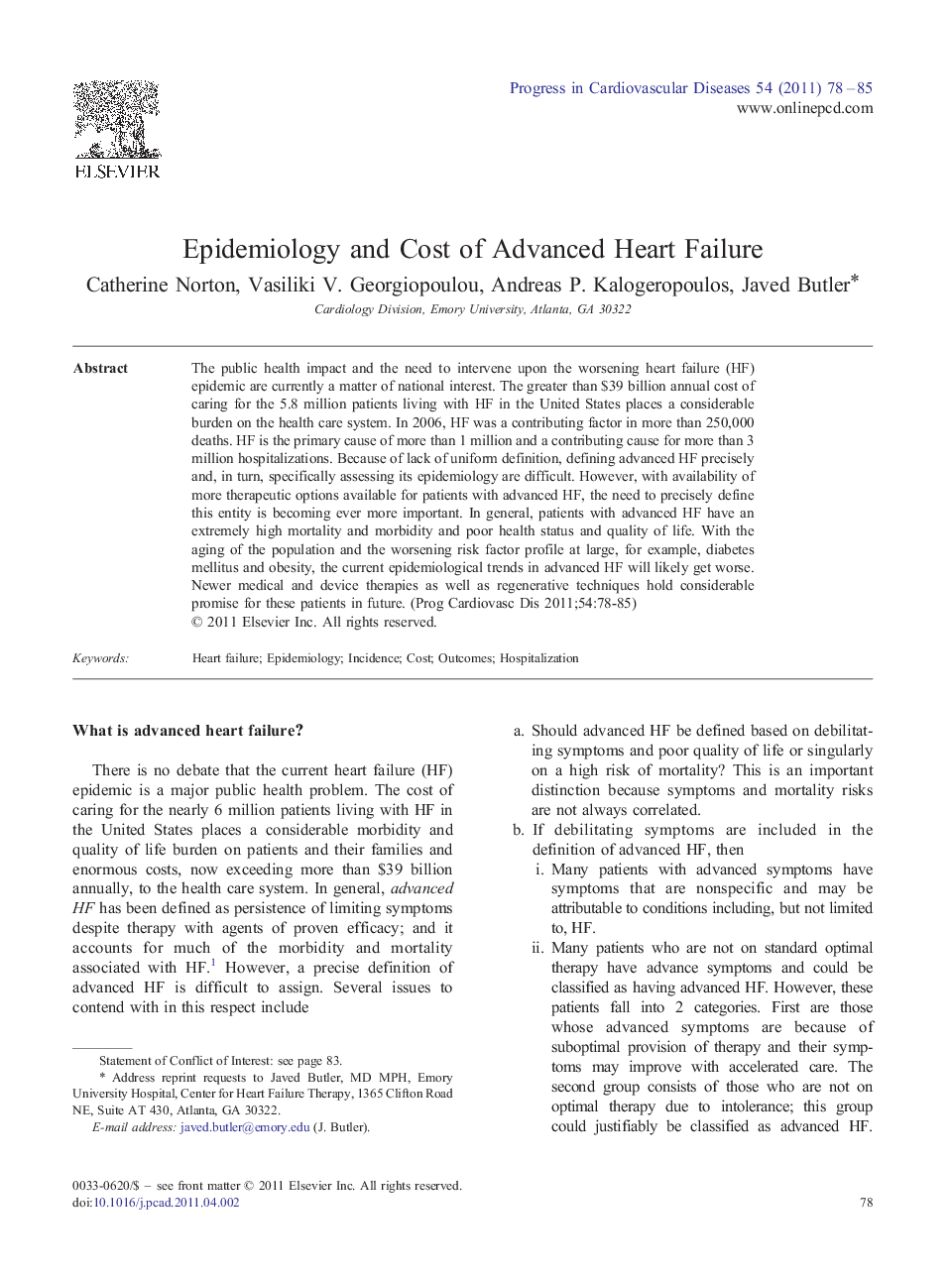| Article ID | Journal | Published Year | Pages | File Type |
|---|---|---|---|---|
| 3006682 | Progress in Cardiovascular Diseases | 2011 | 8 Pages |
The public health impact and the need to intervene upon the worsening heart failure (HF) epidemic are currently a matter of national interest. The greater than $39 billion annual cost of caring for the 5.8 million patients living with HF in the United States places a considerable burden on the health care system. In 2006, HF was a contributing factor in more than 250,000 deaths. HF is the primary cause of more than 1 million and a contributing cause for more than 3 million hospitalizations. Because of lack of uniform definition, defining advanced HF precisely and, in turn, specifically assessing its epidemiology are difficult. However, with availability of more therapeutic options available for patients with advanced HF, the need to precisely define this entity is becoming ever more important. In general, patients with advanced HF have an extremely high mortality and morbidity and poor health status and quality of life. With the aging of the population and the worsening risk factor profile at large, for example, diabetes mellitus and obesity, the current epidemiological trends in advanced HF will likely get worse. Newer medical and device therapies as well as regenerative techniques hold considerable promise for these patients in future.
